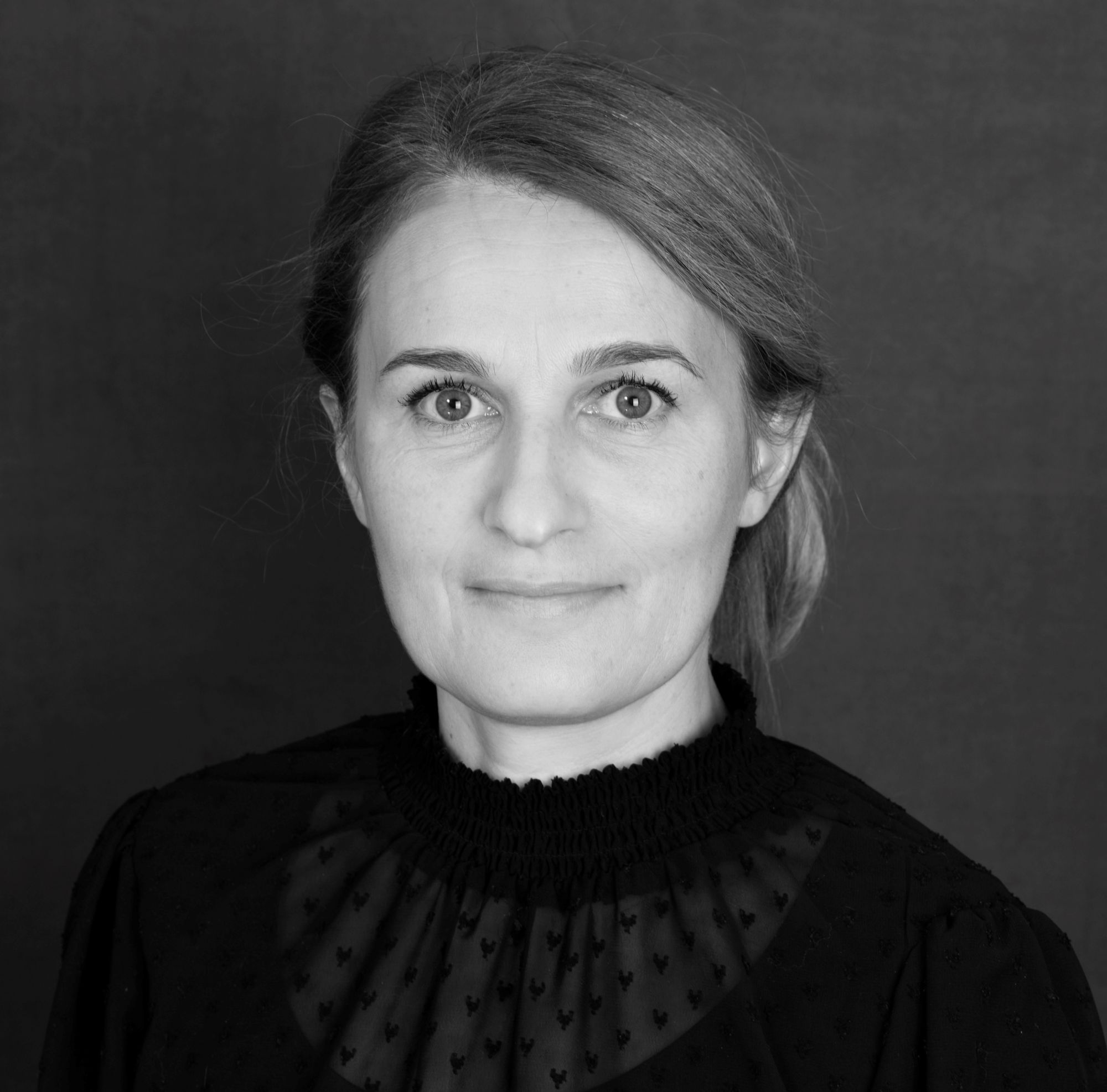- Home
- EN
- Our impact
- ProspeKtive
- How to reenchant the office?

How to reenchant the office?
August 2022
Expert
Occupational psychologists and the new forms of office.
The omnipresence of digital technologies has largely contributed to the splitting up of space(s) and work: work today tends to multiply its spaces and supports, it changes its form and content. More intellectual, immaterial, it would require more collaboration and would mobilize the creativity of an active subject in the construction of his work environment. The health crisis has only accelerated this movement of rupture between space and activity by normalizing "hybrid" and/or "co-modal" forms of activity. With the end of imposed telework, a horizon is emerging that is no longer obvious: that of a return to the office. Many workers' living conditions have changed. The question of return quickly leads to the question of the use or function of workspaces, which are immediately perceived as a "container" capable of giving physical form to otherwise dispersed teams.
From the point of view of work psychology - understood as the psychology of activity and not as the psychology of motivation at work - the design and implementation of this type of solution raises a fundamental question, namely, what part should be played by activity in the construction of spaces? And even more, under what conditions - social, organizational, interactional - will the relationship between space and activity be able to be constituted as an object of thought for the teams at different levels of the company? Any attempt at a univocal and definitive answer to these questions inevitably comes up against the complexity of reality.
However, if real estate and development projects mobilize many internal and external actors (consultants, architects, ergonomists, Human Resources, Real Estate, Information Systems, etc.), work psychologists are rarely solicited, probably because their contribution - its objects, its scope, its interest - seems difficult to perceive and to qualify. At best, the intervention of a psychologist in the context of an office design project slips into existing frameworks that do not belong to him or her alone. Under the guise of needs analysis or change management, it takes on the appearance of an expert reading of employees' working conditions or of actively listening to what they say.
Indeed, most of these projects are concerned with involving employees in the design process, either with the aim of listening to them so that they can express their feelings about a transformation that is likely to stir up fears and frustrations, or with the aim of producing a discourse that will make it possible to define or legitimize the material and/or functional characteristics of the spaces. The distinction sometimes made between Workplace (organization of the work environment) and Change (management of change) covers these two omnipresent orientations in design projects. Generally speaking, one or the other of these two aspects unfortunately ends with the entry of employees into their new workspace. But where the project disappears - the only provisional formal framework for thinking about space in relation to "activity" - the ordinary work begins, an inexhaustible source of enigmas and innovations.
The question of the return to the office or how to re-enchant the office is first of all a demand for meaning, a demand for the elaboration of work and its transformations. The normalization of remote work in the wake of the health crisis has helped to highlight this demand as such. It is basically a question of questioning its place in the symbolic universe of the company, of questioning its limits and, in so doing, of rethinking the norms that govern it.
The occupational psychologist is a professional of the framework - a creator of space-time for elaboration on work, its forms and contents. Far from waving a magic wand to bring out immediate and definitive solutions, his action consists in building opportunities for collective work, management bodies for a living dialogue on work in its concrete dimensions, as well as the outlines of new experiments in which activities and spaces would find a continuity and meaning that are always in motion.
L’omniprésence des technologies numériques a largement contribué à l’éclatement entre espace(s) et travail : le travail tend aujourd’hui à multiplier ses espaces et ses supports, il change de forme et de contenu. Plus intellectuel, immatériel, il nécessiterait davantage de collaboration et mobiliserait la créativité d’un sujet actif dans la construction de son milieu de travail. La crise sanitaire n’a fait qu’accélérer ce mouvement de rupture entre espace et activité en normalisant des formes d’activités « hybrides » et/ou « co-modales ». Avec la sortie du télétravail imposé se dessine un horizon qui n’a désormais rien d’évident : celui du retour au bureau. Nombreux sont les travailleurs dont les conditions de vie ont évolué. La question du retour induit rapidement celle des usages ou de la fonction des espaces de travail, d’emblée perçus sous l’angle du « contenant » capable de redonner une forme physique à des équipes sinon dispersées.
Du point de vue de la psychologie du travail – entendue comme psychologie de l’activité et non comme psychologie des motivations au travail – la conception et l’implémentation de ce type de solutions pose une question de fond, celle de savoir quelle serait la part de l’activité dans la construction des espaces ? Et plus encore, à quelles conditions – sociales, organisationnelles, interactionnelles – les rapports entre espace et activité pourront-ils se constituer comme objet de pensée pour les équipes à différents niveaux de l’entreprise ? Toute tentative de réponse univoque et définitive à ces questions se heurte inévitablement à la complexité du réel.
Pourtant, si les projets immobiliers et d’aménagement mobilisent de nombreux acteurs internes et externes aux entreprises (consultants, architectes, ergonomes, directions des Ressources Humaines, Immobilière, des Systèmes d’Information etc.), les psychologues du travail y sont rarement sollicités, sans doute car leur contribution – ses objets, sa portée, son intérêt – semble difficile à percevoir et à qualifier. Au mieux l’intervention d’un psychologue dans le contexte d’un projet d’aménagement de bureau se glisse dans des cadres existants qui ne lui appartiennent pas en propre. Sous le couvert de l’analyse des besoins ou de la conduite du changement, elle prend l’allure d’une lecture experte des conditions de travail des salariés ou de celle d’une écoute active de leur parole.
Car en effet, la plupart de ces projets affichent le souci d’associer les collaborateurs au processus de conception, soit dans le but de leur offrir une écoute pour qu’ils expriment leur ressenti d’une transformation, susceptible d’attiser peurs et frustrations ou dans l’objectif de produire un discours permettant de définir ou légitimer les caractéristiques matérielles et/ou fonctionnelles des espaces. La distinction parfois admise entre Workplace (organisation de l’environnement du travail) et Change (conduite du changement) recouvre ces deux orientations omniprésentes dans les projets d’aménagement. D’une manière générale, l’un ou l’autre de ces deux volets s’achèvent malheureusement avec l’entrée des salariés dans leur nouvel espace de travail. Or là où disparaît le projet – seul cadre formel provisoire permettant de penser l’espace en rapport avec l’« activité » – commence l’ordinaire du travail, source inépuisable d’énigmes et d’innovations.
La question du retour au bureau ou comment réenchanter le bureau est d’abord une demande de sens, une demande d’élaboration du travail et de ses transformations. La normalisation du travail à distance à la suite de la crise sanitaire a contribué à mettre en exergue cette demande en tant que telle. Il s’agit au fond d’interroger sa place dans l’univers symbolique de l’entreprise, d’en questionner les limites et ce faisant de repenser les normes qui le régissent.
Le psychologue du travail est un professionnel du cadre – un créateur d’espace-temps d’élaboration sur le travail, ses formes et ses contenus. Loin d’agiter une baguette magique pour faire émerger des solutions immédiates et définitives, son action consiste à construire des occasions de travail collectif, des instances de gestion d’un dialogue vivant sur le travail dans ses dimensions concrètes, ainsi que les contours d’expérimentations nouvelles dans lesquelles activités et espaces retrouveraient une continuité et du sens toujours en mouvement.
References
- Ianeva, M. & al. (2020). Les nouveaux territoires physiques de l’activité digitale. Dans M.-E. Bobillier -Chaumond (Ed.), Les transformations digitales à l’épreuve de l’activité et du travail (https://www.istegroup.com/en/produit/les-transformations-digitales-a-lepreuve-de-lactivite-et-du-travail/)
- Ianeva, M., Tomás, J.-L. (2021). Guest editorial : Rethinking Work through (Work)Spaces: current issues for organizational change and workplace learning. Journal of Workplace Learning, 33(1), 1-9 (https://www.emerald.com/insight/content/doi/10.1108/JWL-02-2021-170/full/html)
Release date: August 2022



